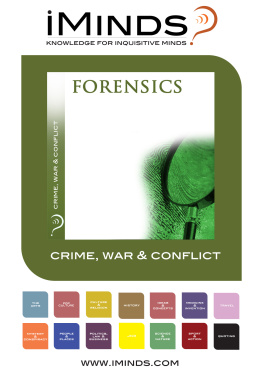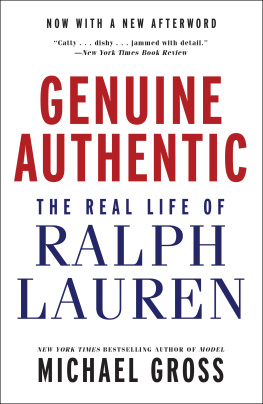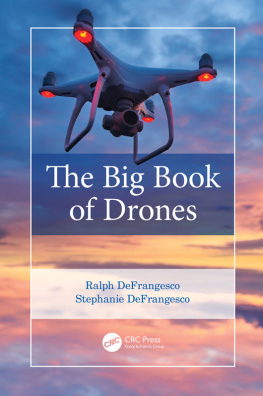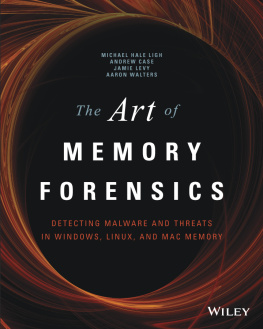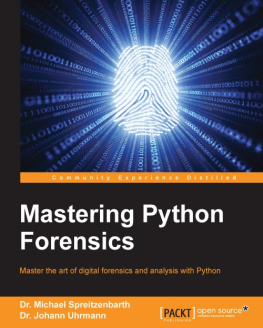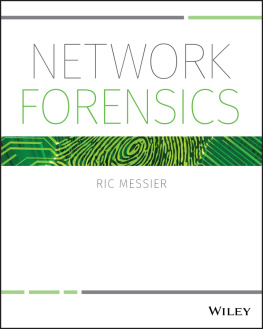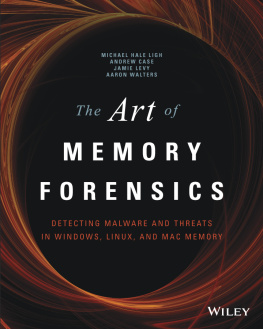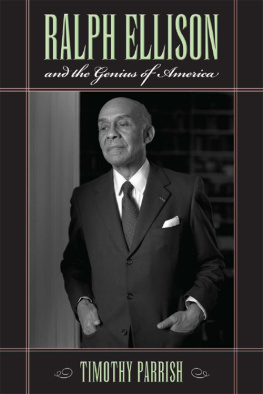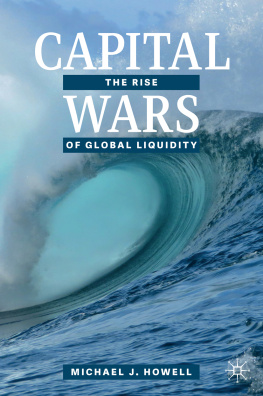Michael Ralph is assistant professor of social and cultural analysis at New York University.
The University of Chicago Press, Chicago 60637
The University of Chicago Press, Ltd., London
2015 by The University of Chicago
All rights reserved. Published 2015.
Printed in the United States of America
24 23 22 21 20 19 18 17 16 15 1 2 3 4 5
ISBN-13: 978-0-226-19843-9 (cloth)
ISBN-13: 978-0-226-19857-6 (paper)
ISBN-13: 978-0-226-19860-6 (e-book)
DOI: 10.7208/chicago/9780226198606.001.0001
Library of Congress Cataloging-in-Publication Data
Ralph, Michael (Anthropologist), author.
Forensics of capital / Michael Ralph.
pages cm
Includes bibliographical references and index.
ISBN 978-0-226-19843-9 (cloth : alkaline paper)ISBN 978-0-226-19857-6 (paperback : alkaline paper)ISBN 978-0-226-19860-6 (e-book) 1. SenegalForeign economic relationsHistory. 2. SenegalPolitics and government. 3. SenegalSocial conditions. 4. SenegalEconomic conditions. 5. CapitalSocial aspectsSenegal. I. Title.
DT549.62.R35 2015
332'.04109663dc23
2014045145
This paper meets the requirements of ANSI/NISO Z39.48-1992 (Permanence of Paper).
People always think that we are here to get oil. But Senegal doesnt even have any oil. Lieutenant Colonel Matt Sousa is the senior defense officer, defense attach, and chief of the Office of Security Cooperation for the US Army at the US embassy in Dakar. He is eager to set my mind at ease as we chat in his office on what we later discover is the final day of the January 25 uprising in Cairos Tahrir Square.
Its true that Senegal does not even rank in the top ten of Africas largest oil producers. But its strange that he didnt acknowledge growing interest in foraging for oil along Africas Atlantic coast and throughout the continent.
More than a decade ago, Le Monde Diplomatique published an article titled The New Gulf Oil States, where it discussed telling shifts in the geopolitics of oil post9/11. The United States used to attach little importance to Africa, the French publication observed in 2003, but now it is reviewing its oil sources strategy. Sub-Saharan Africa, with its good quality oil reserves, could account for 25% of all US crude oil imports by 2015.
Sousas comments are even more curious in the context of a 2006 book he wrote with James Forest, then an assistant dean and professor at the US Military Academy: Oil and Terrorism in the New Gulf: Framing U.S. Energy and Security Policies for the Gulf of Guinea. In a section titled Oil and Security in West Africa: A Chance to Get It Right, Forest and Sousa note, The Gulf of Guinea presents some unique opportunities, quite distinct from the Middle East. Oil is plentiful, the people are incredibly poor, and state infrastructures are weak. Sousa and Forest are keen to identify the political virtues of this region where oil is plentiful: [R]adical Islam has only a limited influence in the region, and the US has good relations with many African nations. Hence, a proposal presented as a scholarly conclusion: This analysis Of course, by the time I met Sousa, a Nigerian group that went by the name Boko Haram (meaning Western education is forbidden) had gained notoriety for launching intermittent, yet fatal, assaults against civilians in the effort to destabilize the Nigerian government and to curb US influence. By the time of my visit to the Office of Security Cooperation in 2011, affiliates of al-Qaeda were making their way into West Africa via conduits in Mali. In other words, the forensic calculus involving Africas oil-rich countries had been transformed, with implications for Senegals diplomatic standing.
In subsequent conversations when I reminded Sousa about his prognosis for US foreign policy in Africa some years before, he noted that his 2003 publication with Forest carried a disclaimer that it was written from the perspective of a civilian and not with strategic interests in mind. Still, I wondered what to make of the fact that a US military officer had helped to write a book emphasizing the strategic advantages of pursuing oil in Africa but would actively discount this possibility in conversation with scholars interested in these issues. Sousas stated position was especially odd given the way Senegal has attempted to position itself in recent years.
On August 1, 2011, the World Trade Center of New Orleans, together with the Republic of Senegal Consulate of Louisiana, hosted a visit by Her Excellency Fatou Danielle Diagne, Senegals ambassador to the United States, as part of an Oil and Gas, Maritime, and Investment Roundtable.
Does becoming an oil-rich country mean adopting a particular political profile? The presence of oil reserves creates political complications that articulate with the potential for acts of extralegal violence deemed terrorism but are not reducible to them. Nigerias oil complex has caused widespread environmental devastation for all the billions it has generated. Intellectuals and activists attempting to critique the way US oil executives dictate federal
An Associated Press news blast discussing the roundtable noted that Senegal had already recorded promising geological surveys that are ramping up interest in onshore and offshore petroleum exploration. The article further noted that the Port of Dakar is the first major port-of-call from Europe and that it is served by several major shipping lines. The panel discussion featured geologists making presentations on oil, natural gas and mining projects in the Senegal Basin. In this connection, its worth noting that President Macky Sall of Senegalwho in March 2012 secured his bid for the nations highest office amid widespread protests and public consternation concerning suspected corruption by the incumbent president Abdoulaye Wadeis a petroleum engineer.
The question of mortality surfaces in other ways. While African states boast that oil engenders economic opportunities for their citizens, oil firms routinely contract with desperate workers from diverse nations of the global South to reduce the liability engendered by a workplace injury or fatal accident. What does it mean that Dakar is pivotal to this elaborate operation? My interview with Sousa took place amid widespread discontent with the national government in Senegalincluding what many human rights organizations cited as excessive force by police and military personneleven as US military and embassy officials lavished praise on Senegal as a model democracy.
Should Senegalese people be heartened or concerned that some of the primary architects of this massive plan to develop a security apparatus that benefits economic development seem oblivious to the burgeoning relationship between governance and petropolitics emerging in Senegal? Is this an aberrant event in the landscape of Senegalese politics? Or might it be evidence that there is more to Senegals favorable diplomatic standing than is readily apparent?
One of Africas few democracies, Senegal has long been considered a leader of moral, political, and economic development on the continent. We tend to assume that any such nation has achieved favorable international standing on its own merits. In what follows, I interrogate this conventional thinking, demonstrating that Senegals diplomatic standing was strategically forged at key historical junctures and is today entirely contingent on the consensus of wealthy and influential nations and international lending agencies.



